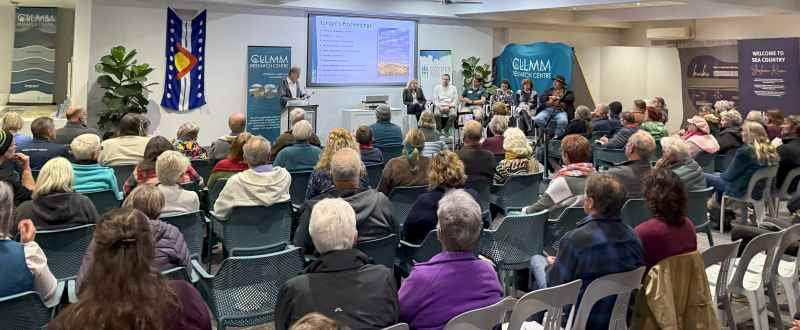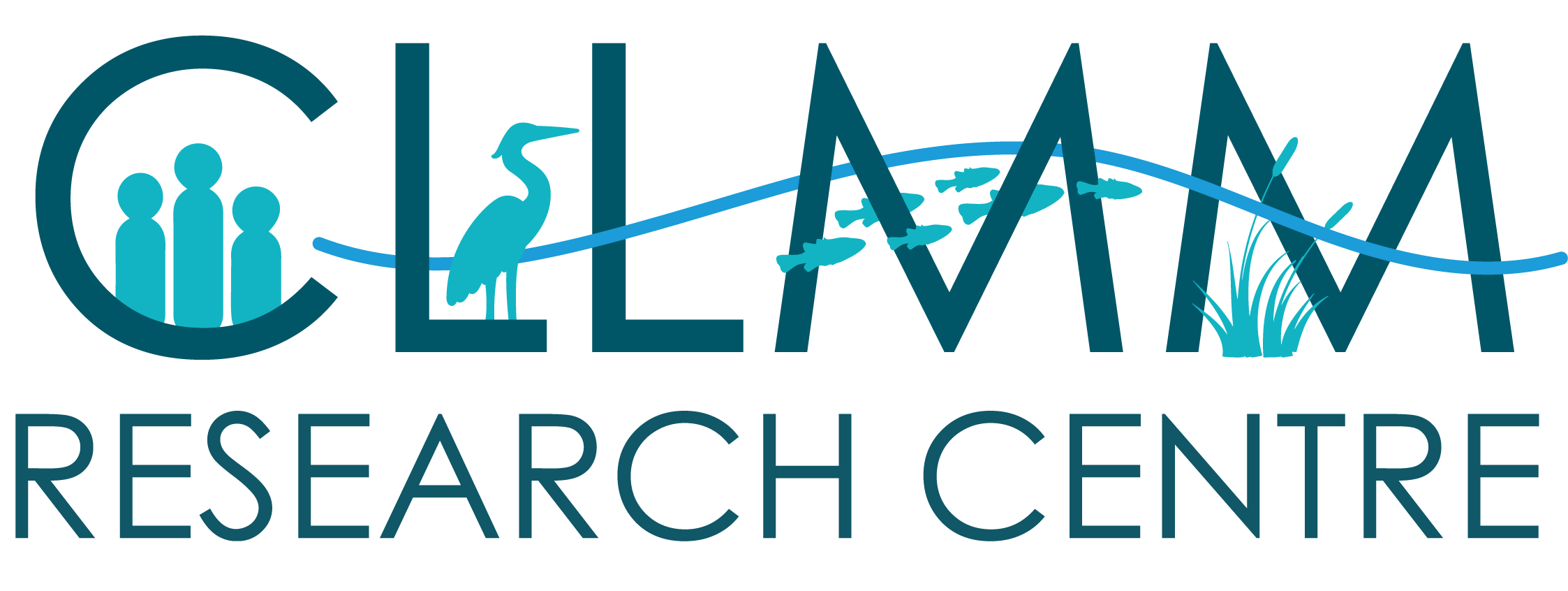
On 5 September 2025, we convened the Stronger Together: Navigating Environmental Challenges Ahead Community Forum. This took place in response to ongoing community concerns about the current harmful algal bloom (HAB) impacting the South Australian marine environment, to raise awareness of the emerging risk of Highly Pathogenic Avian Influenza, and to acknowledge the emotional and psychological toll environmental challenges have on communities and individuals.
The event brought together cultural leaders, scientific experts, mental health specialists, and community representatives with the intention to promote two-way knowledge exchange and strengthen community resilience and preparedness for environmental change.
Approximately 100 participants attended the event, highlighting the importance of the topic areas to the local community and a willingness to engage with science and cultural knowledge.
Six speakers gave individual presentations before contributing to a panel which received questions and discussion points from the audience:
- Mark Koolmatrie (Ngarrindjeri elder and local tourism business owner): Caring for Ngartji and staying connected as a community.
- Professor Shauna Murray (Marine biologist and Harmful Algal Bloom expert, University of Technology Sydney): Harmful Algal Blooms.
- Dr Brianna le Busque (Environmental Psychology Scientist, University of South Australia): Ecoanxiety and Solastalgia
- Dr Karl Hillyard (South Australian Avian Flu Preparedness Coordinator, NPWS and DEW): Avian Influenza Risks and Preparedness.
- Sophia Villis (Psychologist, Transform Psychology): Community resilience during the algal bloom – reflections and strategies.
- Associate Professor Gareth Butler (Lecturer in Human Geography, Flinders): Building community resilience through citizen science – Kangaroo Island Passport to Recovery Program.
The structure of the event enabled the panel and community members to exchange knowledge and experiences, facilitating learning and raising awareness of current and future challenges for the CLLMM region under a changing climate.
Attendees highlighted a number of key priority areas for the future:
- clearer communication and commitment from state and federal governments on HAB research and knowledge sharing.
- establishment of trusted, ongoing information-sharing platforms.
- support for adaptation of citizen science approaches to strengthen local monitoring capacity, and the involvement of citizenry.
You can find resources relevant to forum topics on the CLLMM Research Centre website
